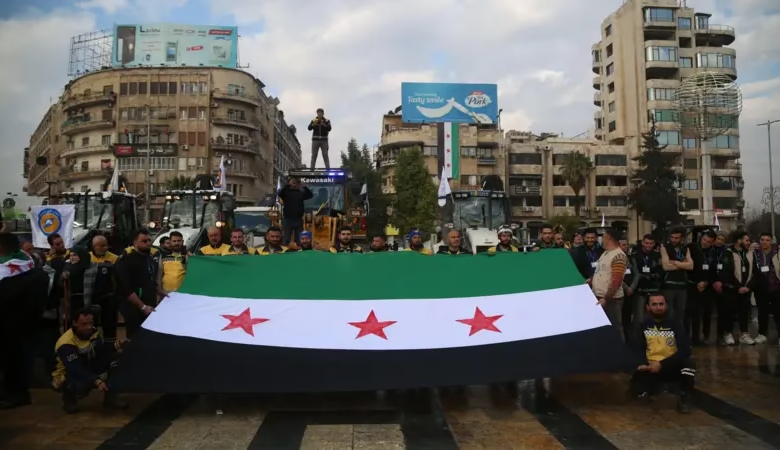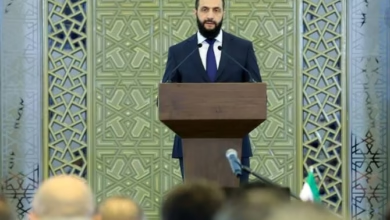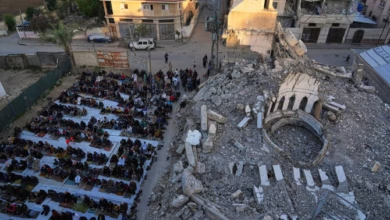
International Community Responds to Syria’s Recovery Needs
In a recent pledging conference, donor countries, including the European Union, committed a total of €5.8 billion ($6.3 billion) in aid to Syria. However, this amount falls short of previous pledges, primarily due to the absence of contributions from the United States.
European Commissioner for the Mediterranean, Dubravka Šuica, announced that the pledged aid would consist of €4.2 billion in grants and €1.6 billion in loans. This funding aims to address the ongoing humanitarian crisis and support Syria’s recovery efforts, particularly in areas still grappling with the aftermath of the ongoing conflict.
United States Reduces Contribution
The United States, under the leadership of President Donald Trump, had suspended international aid, including contributions to Syria. Natasha Franceski, the U.S. representative at the donor conference, highlighted that the U.S. has been the largest contributor to Syria’s aid in the past 14 years, providing over $18.3 billion. Despite this, she emphasized that the U.S. would continue to provide aid in accordance with U.S. law, while expecting other countries to take the lead.
Europe’s Continued Commitment and UK’s Pledge
The European Union, alongside other nations, has continued its commitment to providing financial assistance. Ursula von der Leyen, President of the European Commission, emphasized that Syrians still need significant support, whether they remain in exile or choose to return home. The UK has pledged up to £160 million ($200 million) for 2025, focusing on essential needs such as water, food, healthcare, and education.
Syria’s Political Situation and Challenges in Aid Delivery
The donor conference, held in Brussels, served as a platform for international discussions on Syria’s future, following the December 8 fall of President Bashar al-Assad’s regime. Syrian Foreign Minister Asaad al-Sheibani assured the international community that Syria would not tolerate any infringement on its sovereignty and unity. He emphasized that the government is working on national reconciliation, fostering dialogue, and protecting the rights of all citizens.
The EU also welcomed the formation of an investigative committee to address violence in Syria’s coastal region, which has resulted in many civilian casualties. The EU has pledged to take all necessary actions to prevent such crimes from happening again.
SUBSCRIBE
NO SPAM – JUST NEWS THAT MATTERS.
Challenges of International Sanctions and Economic Recovery
Discussions surrounding sanctions imposed on Syria also featured prominently in the donor conference. The EU announced that it might reconsider gradually lifting sanctions imposed on Syria if the situation improves. However, the humanitarian assistance system has been significantly affected by the U.S.’s decision to reduce its contributions, which could lead to a decline in available funds for global humanitarian efforts.
Germany has already committed €300 million in additional assistance for Syria, with Foreign Minister Annalena Baerbock stressing the importance of supporting the UN and other organizations to ensure a sustainable recovery for the Syrian people.
Turkey’s Role and Ongoing Regional Tensions
Turkey, a key ally of Syria’s transitional authorities, has called for the lifting of all sanctions on Syria unconditionally and indefinitely. Turkey argues that economic security is vital for the stability and security of Syria. The Turkish government also advocates for comprehensive reconstruction efforts to encourage the return of refugees.
Turkey is actively pressing for a resolution to the situation of Syrian Kurdish forces, particularly the Syrian Democratic Forces (SDF), which Turkey accuses of links to the Kurdistan Workers’ Party (PKK), labeled a terrorist organization by Turkey and the West. The new Syrian authorities are working to consolidate control over the country and address the issue of armed groups in the region.
The Long Road to Recovery
The United Nations has estimated that Syria will need at least 50 years to recover economically to pre-war levels, given the current state of the country’s infrastructure and economy. Last year, the donor conference raised approximately €7.5 billion for Syria. However, this year’s efforts face significant setbacks due to the absence of U.S. contributions, which has historically been a crucial pillar in humanitarian aid for Syria.
Conclusion
As Syria faces a long and challenging road to recovery, international donors, particularly from Europe, continue to support the country’s rehabilitation. While the U.S. decision to cut aid has created a funding gap, European nations have stepped in to provide much-needed financial assistance. The focus remains on addressing immediate humanitarian needs while preparing for long-term reconstruction efforts in a post-conflict Syria.
This evolving situation highlights the international community’s complex role in the recovery process and the delicate balance between political, economic, and humanitarian concerns.
- Source: BBC NEWS








